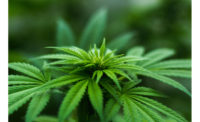Study finds Canadian consumers excited to try cannabis-infused beverages
The study found that CBD-based beverages had the highest future purchase intent.

BevCanna Enterprises Inc., Canada, announced the results of its North American-wide consumer study, focused on product and consumption preferences within the cannabis-infused beverage market.
Conducted by an independent research group on behalf of BevCanna, over 2,000 adults of legal drinking age were surveyed on their interest and preferences in current and potential products, purchase likelihood, preferred format (edibles, beverages, topicals, etc.) and most likely consumption occasions (pain relief, as a sleep aid, relaxation, etc). Survey participants were based in Canada, New York and California.
The study found that while more Canadians are aware of THC-based cannabis products and smokable/combustible forms of cannabis (joints, bongs, pipes), it was CBD-based beverages that had the highest future purchase intent. In fact, over 70% of Canadian consumers would “definitely” or “probably” purchase CBD-infused beverages once legal.
The study also found that consumers across all regions see CBD-infused beverages as contributing to a healthy lifestyle.
“The opportunity for brand builders is to leverage clean ingredients, in compelling and crave-worthy beverages that appeal to a health-conscious consumer,” says Emma Andrews, chief commercialization officer at BevCanna and registered nutritionist. “Our research indicates that consumers are eager to try infused beverages to reduce/relieve pain, at the end of the day to relax or unwind or to help them achieve a more restful sleep, even if there are limitations on health claims connected to recreational/adult-use products. Ultimately the product has to deliver on the expected outcome.”
And while Canadian consumers would also consider THC beverages as a means to relax and unwind, they tend to associate THC with consumption occasions such as hanging out with friends or social gatherings. The study also found that 45% of Canadian consumers don’t associate cannabis with alcohol, viewing them as suitable for completely separate consumption occasions.
Infused beverages are expected to be legalized in Canada in October.
Looking for a reprint of this article?
From high-res PDFs to custom plaques, order your copy today!






